THING 005 : NAUSEA 

DIRTYRITA FT. OMG THIS IS FLAWLESS


ALIVE S03E04
LEWIS TEAGUE WRIGHT


THE SYMBIOTIC RELATIONSHIP OF A FAKE ROCK THAT HIDES A KEY
555-5555


3M24S OF MOZART’S FINAL SYMPHONY’S CLOSING MOVEMENT, SLOWED BY 1600% TO SPAN JUST UNDER AN HOUR
LAUREN GODFREY


CLOCKWISE FROM LEFT
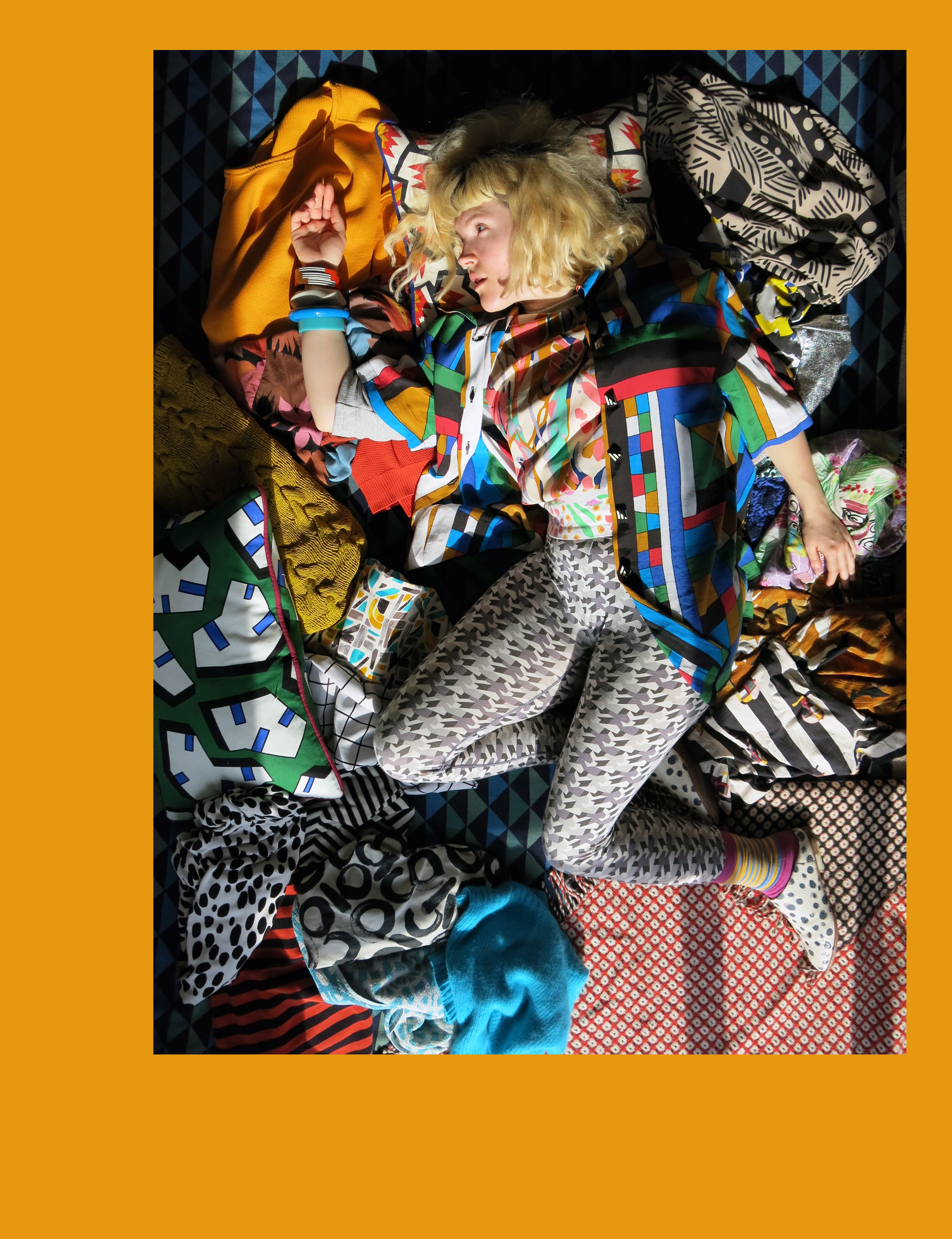
SOPHIE LEE


FEELINGS
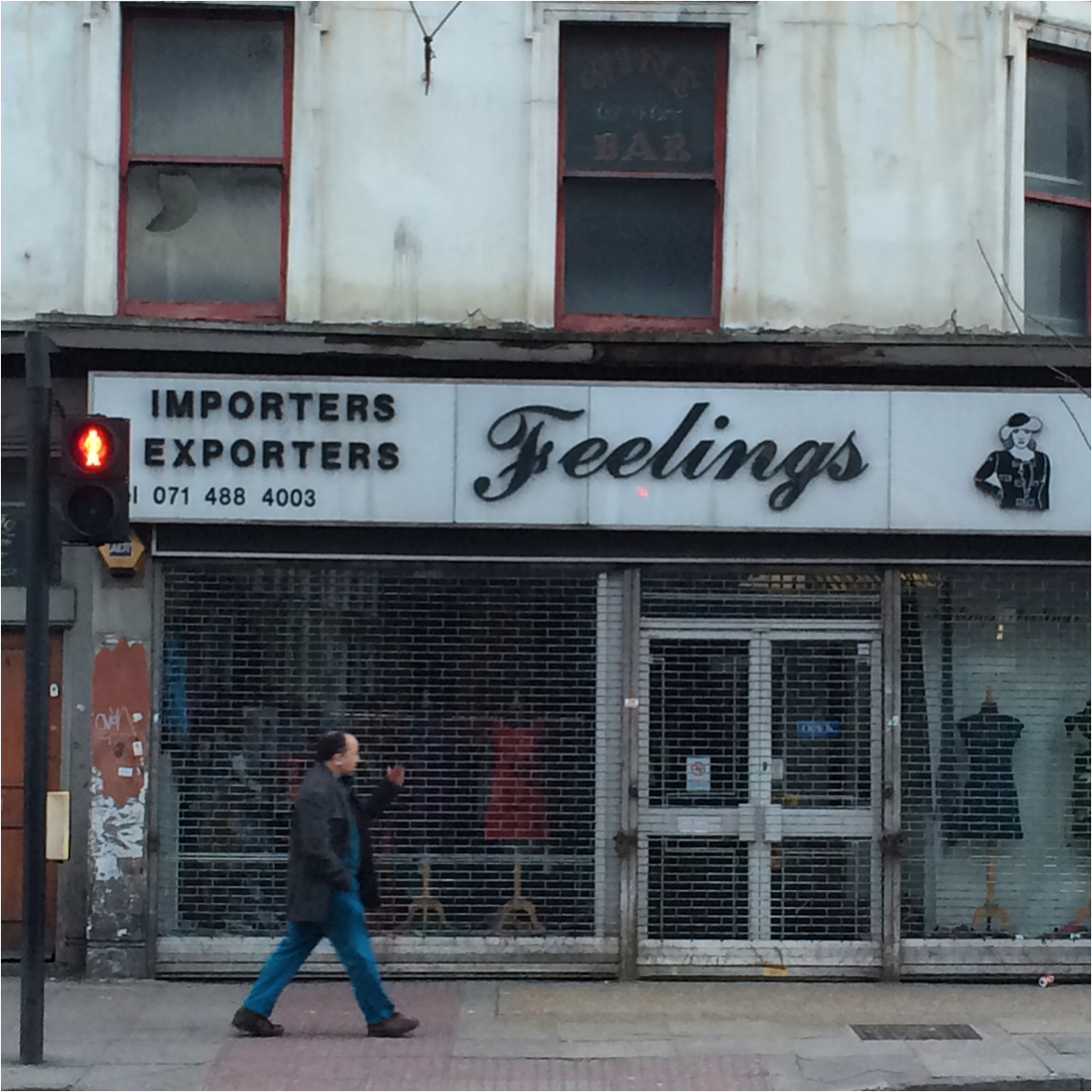
There’s a wholesale clothing shop on the Commercial Road called Feelings. It’s written in big, black cursive letters, next to which (the wrong way) it reads ‘importers / exporters’. Just for fun, let’s say there are some analogies to be drawn about our relation to production.
We, the Dutiful & Sensitive Cultural Producers, are the ‘ / ‘ between the import and the export. Consumers who suck, feeders on a sickly mess of history and Things, sufferers of a cultural nausea that roils in the gut. A cult of expression demands that, when the time comes, you spit it out. Half digested, half baked, lumps of ambergris strew the pavement.
* * *
/ as a skin (Like when you watch adverts on TV and suddenly tingle with goosebumps, all the little hairs standing on end with Genuine Emotion)
/ as a semi-permeable membrane, allowing the passage of information by a process of osmosis.
/ \ as the endless indeterminate reversals of a drift.
* * *
I went to a talk the other night that explored the potential for a new euphoria in Fiction afforded by the digital. With a refreshing note of optimism, it touched on a lot of areas that I feel are pertinent to the notion of producing now, and would probably even go as far as to say in the project of making sense of contemporary experience as a whole. These areas covered collage, fiction and our relationship to history.
One of the speakers described the Writer as being inherently unoriginal, or, better, as a sort of happy charlatan, the Original Plagiariser. Forget about the Genius (that tedious character!) and look instead to the Detective, the Sampler, the Librarian and the Thief. In these more devious and dusty roles production becomes the search for coincidences and simultaneities, the transmission of loops, reading and writing as the organisation of fragments of preceding texts. The actions follow on from one another, like the Ourobouros consuming its own tail, importing and exporting in the shape of a ‘ 0 ‘.
In her 1931 novel Nightwood, Djuna Barnes describes how Jenny Petherwick
“ from the solid archives of usage … appropriated the most passionate love she knew… She was a squatter by instinct”
Like this lover, I think we are also “dealers in second-hand and therefore incalculable emotions”. We’ve grown accustomed to the Tiger’s leap into that which has gone before. Sometimes it’s hard to feel the first time round.
Since reading Moby Dick I’ve been quite into whales. Fun-size, half remembered Encarta facts mingle with an authoritative aroma of David Attenborough, yet the haziness of my knowledge itself seems commensurate with their general air of mystique[1]. A sketch of this knowledge encompasses: the essence of mammalness in their mourning of their dead; the fact of their complex and secretive breeding rituals; and that their echolocation – sounds attributed with a certain literary melancholy – is air-pressure being noisily released through their blow holes. Perhaps my favourite aspect of the whale, however, is the way that it eats. Travelling forwards with its great maw open, a whale sucks in great mouthfuls of water, and then uses its plate of fibrous baleen to filter out the plankton. I think about this when I am spitting out tea leaves, swiping quickly through feeds. It seems topsy turvy that this colossal animal subsists on such comparatively microscopic fill. An Import / Export with the addition of alchemy, a trip in the ‘ 0 ‘, production running swelling inverse to the material going in.
* * *
.
Not far from Feelings is the East London Mosque, where, during Ramadan, I’ve seen great exhalations of worshippers empty out onto the streets and buy mossy looking frappes and squashy looking cakes. I imagine the fantastic midnight sugar spike after all that fasting and praying: a rush of particles to the blood stream, starting to circle the fuzzy white noise with a full and meaty red. In the quick to and fro of glucose, oxygen and carbon dioxide I wonder if the molecular ‘ / ‘s start to quiver, boundaries expanding rapidly like dilated pupils, or threatening to burst wetly like the walls of a sick cell. In sympathy with religious ecstasies, one of those nights it starts to rain, and the city’s edges wobble too. Composites of acid blur reliefs and gargoyles’ faces, which continue to spit water in tubular streams, while cherubs piss generously off the sides of buildings. I pass a burst water main at Camberwell Green, which is pumping thickly like a cut aorta, and muddy rectangles are being bled together by a system of rivulets, capillaries and tributaries. The pavement which we’ve been casting all night looks like carapace or a crust, a carbuncular mantle poised to lift. I hope that it does, and that with the cracking of tectonic plates its tattooed surfaces of UUUUUUUUs and 44444444444s and <3 <3 <3 <3 <3 <3 <3 <3s are pierced with jets of fine mist, and that amidst the broken tarmac there are all sorts of musky, metabolised, calcified forms.
1. : – )
MILO BRENNAN


FUNKY BRIMSTONE
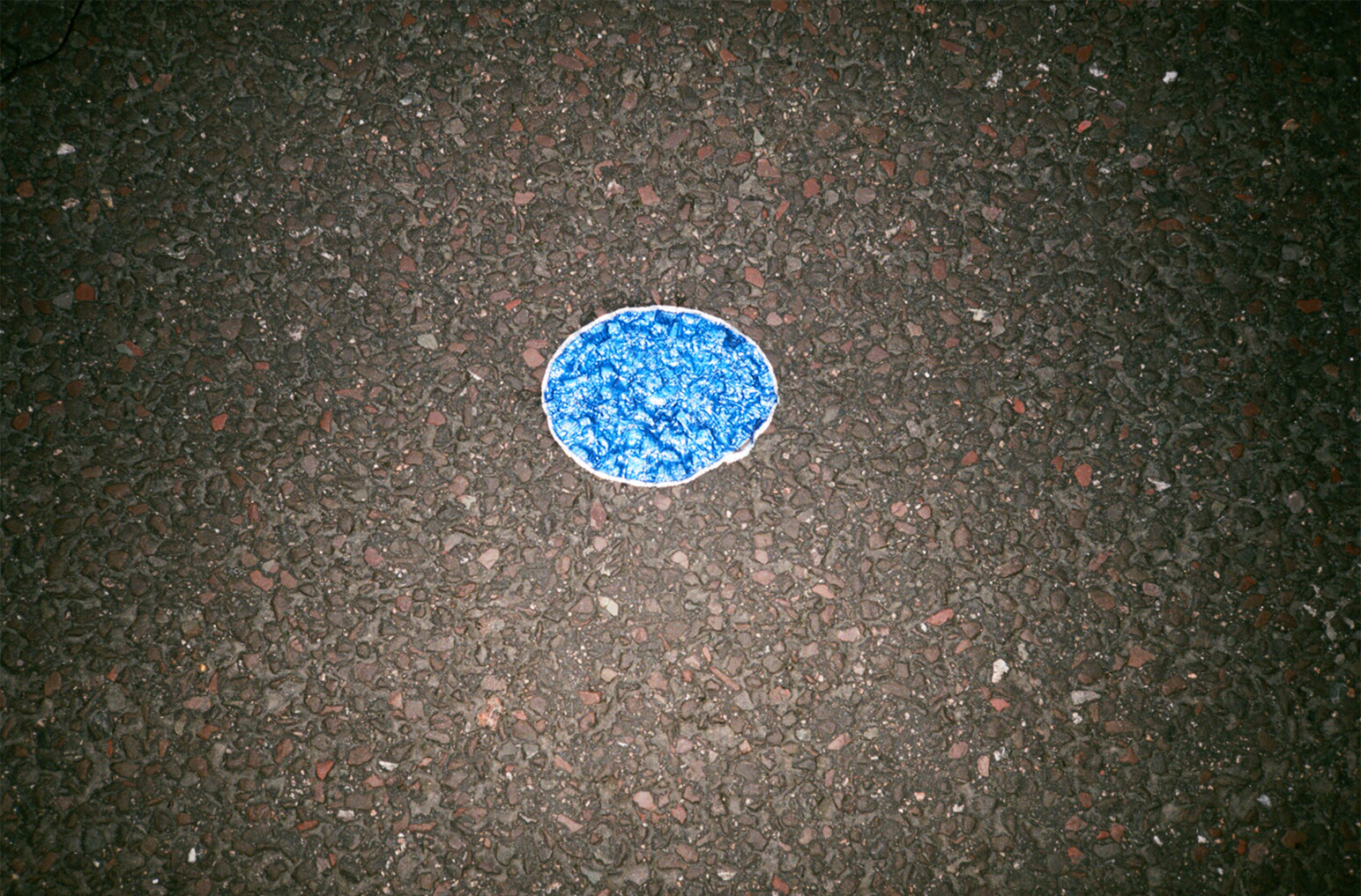
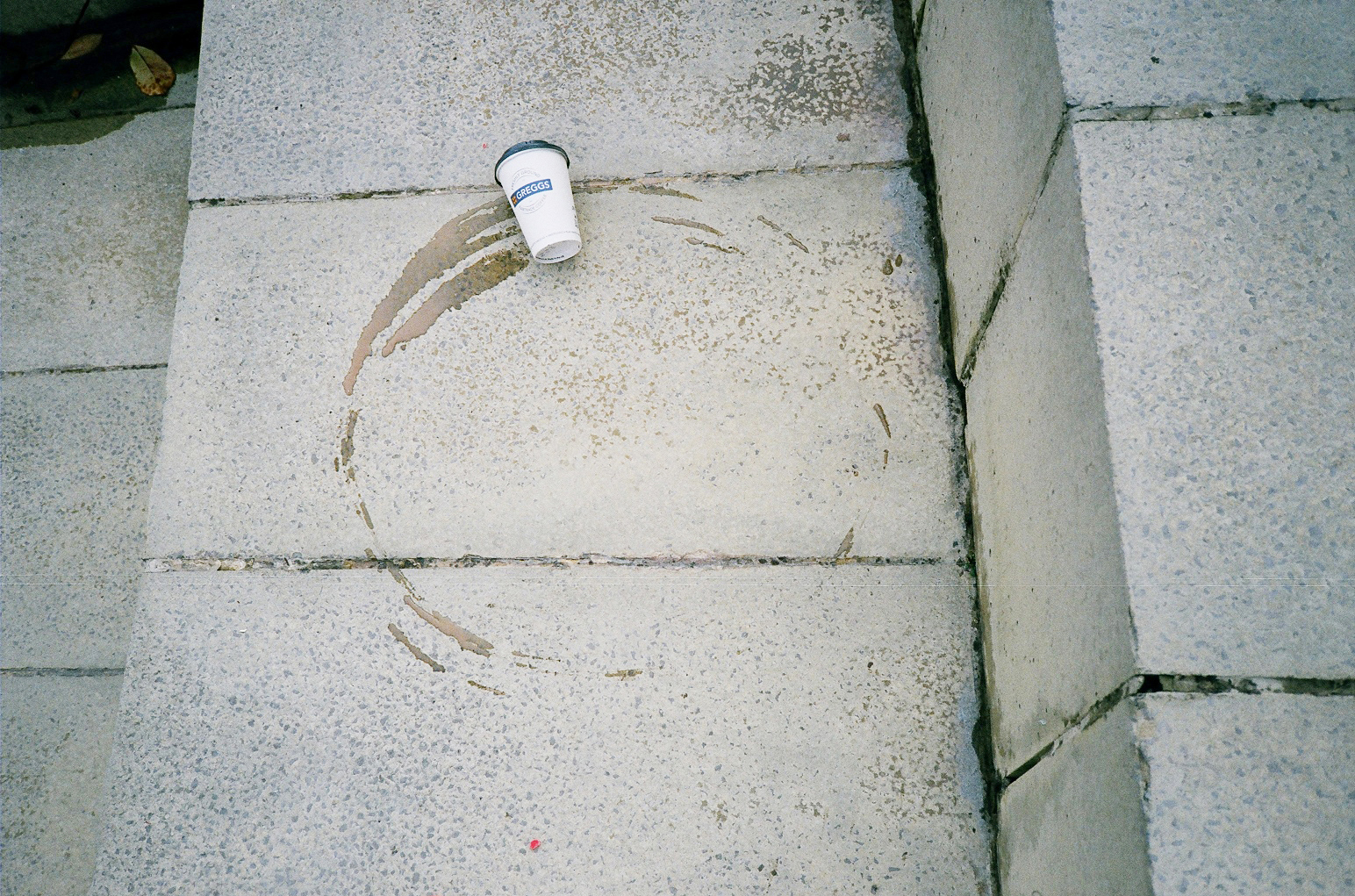

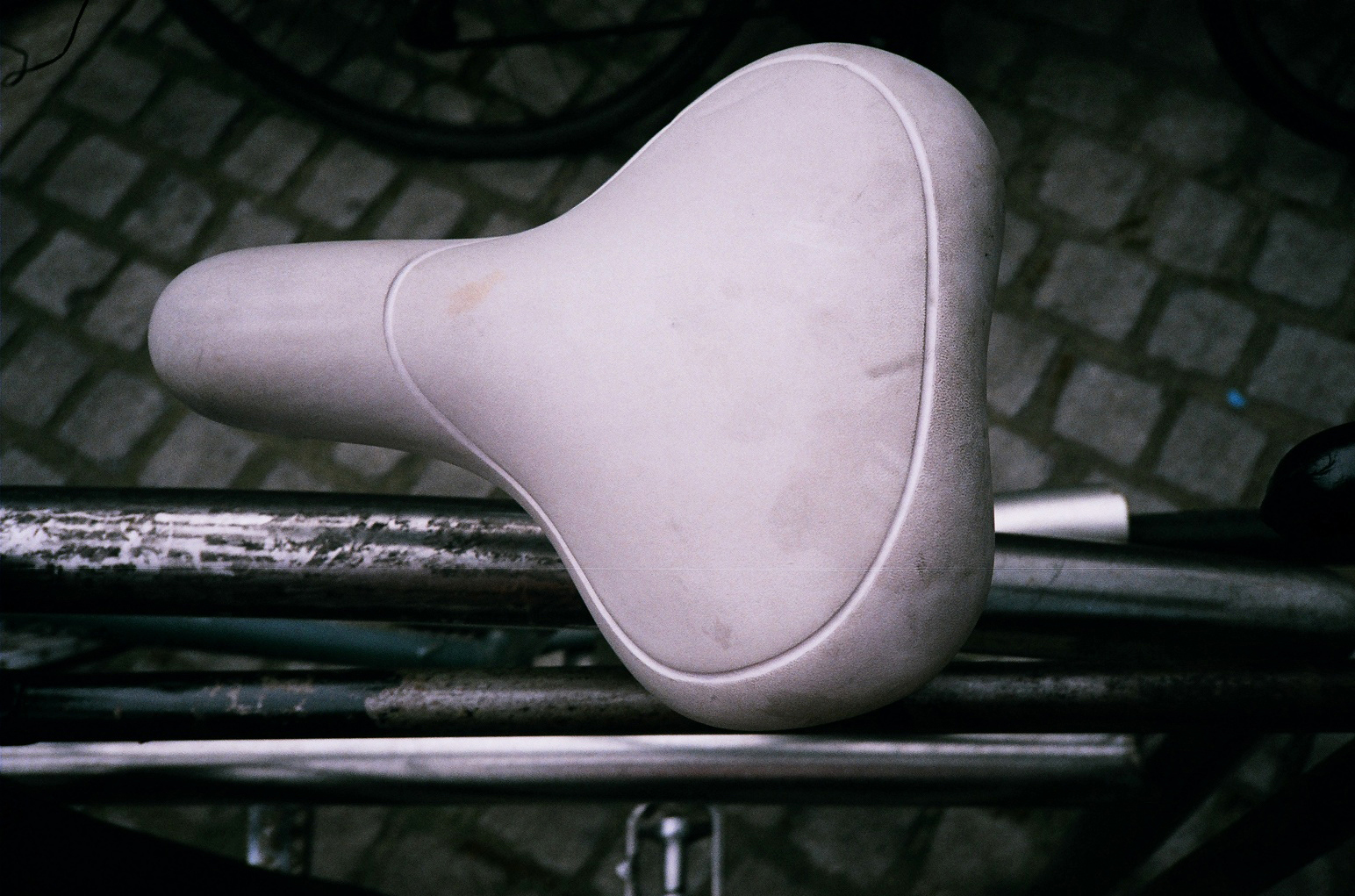
SHOLTO DOBIE


ALONG THE LEAFY GROVE THE WIND IS BLOWING / DANCING ALONG THE FIELD / THE EDGE OF THE ROAD BENDS THE POPLAR / TO THE VERY GROUND
Recording from Kosiv, Ivano-Frankivsk Oblast, Ukraine, 2016.
Title taken from The Poplar Tree by Taras Shevchenko, 1839.
HERMIONE SPRIGGS


WTF !? SPECTATOR OFFENDED ATTACKS THE ALBERT SERRA DIRECTOR IN LONDON THROWING A GLASS OF WATER
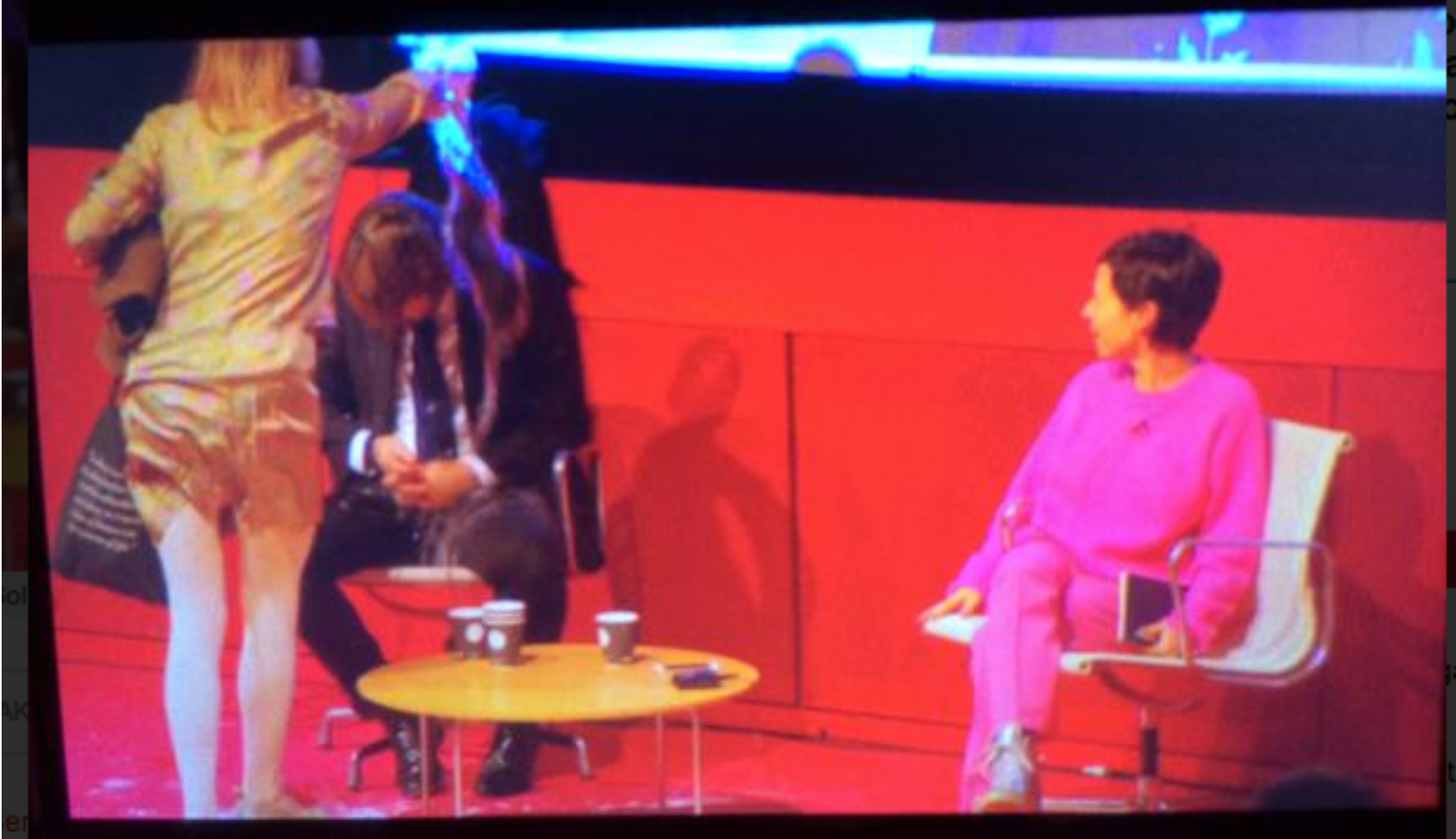
Almost a year ago I threw some water on a guy giving a talk at the Tate. I’ve tried in the interim to think about why and how this happened but when I cast my mind back I hit a wall — I just now did a screen-grab image search of The Water Jug Incident to confirm the artist’s name (which in the meantime I had completely blanked out like a trauma): Albert Serra.
I’d like to point out before I go any further that I’m ‘not the kind of person’ to upturn a water jug on a speaker in public. I do like to go to talks and I try my best to participate – in some form – either by sitting at the front so I can gain some sort of intimacy with the faces and postures of the people I’ve (usually) paid to encounter, and/or by asking a question; or as a recent also-sitting-on-the-front-row acquaintance put it, posing ‘a small intervention’. It’s a strange thing, speaking out from the auditorium, a shadowy figure amongst many other also-shadowy figures who have largely up until that point remained tongue tied and sponge like, passively taking in the action or conversation or whatever ‘important’ thing is occupying centre stage. I like asking questions because it makes me nervous, and thinking about asking one during a talk gives me a small burst of adrenaline that sharpens my focus and helps me to concentrate. I’ve realised that I’m likely to absorb much more of the action or discourse or whatever it is that’s going on in front of me when I promise myself I’ll raise my hand and pipe up at the end. I often wonder why more people don’t try this, and also why – given the current openness and appreciation for all forms of participatory art – we are still, generally speaking, so prone to the spell of an auditorium and the strict division between actor and spectator that this architecture provokes. We are so well behaved and so exemplarily patient in these spaces, you’d be forgiven for thinking that the fourth wall had never been scratched, that the author never died… instead it’s like the dividing partitions and authorial bulges continue to extend themselves outwards, triffid-like, to wrap up and silence each one of us in the audience individually. We sit still, we turn off our phones and our phonemes and we eat what we are fed.
I was recently witness to an argument following a performance in Greece during which an artist read aloud various of her own and other’s texts in a simple, vulnerable, direct address. The context is important here: we were gathered to discuss the relationship between sound and danger in the Santozeum, an institution perched on the crater-rim of an active volcano. I’m sure this contributed to a shared awareness not only of our collective geological precarity, but also of the fragility of the social space that we had temporarily co-constructed as conference participants. As a group we’d made a recent visit to the ancient Minoan site of Akroteri, where layers of volcanic deposit have been excavated to reveal a cross-section of human civilization, seven cities stacked one atop the next, each obliterated by a pyroclastic flow of the sort that inevitably follow volcanic mega-eruptions. Plato was convinced, back in his day, that this island – our Santorini – was Atlantis, and that its apocalypse was due to a causal relationship between the societal corruption of the island’s population (the increasingly cocky Minoans of 15th Century BC) and the volcano’s wrath. The ancient Minoans got too big for their boots, or so the story goes, too greedy and successful, and according to Plato it was moral demise that caused the sentient volcano’s disgruntlement and its subsequent erasure of Atlantean life.
As a group of temporary volcano-dwellers, I wouldn’t say that we were biting our tongues in fear of annihilation, but that most of us had nonetheless developed a degree of geo-sensitivity to the island’s active processes. As we went about our days on the surface of its shallow crust, balanced upon seven previous failed attempts at civilization, there was an overarching sense of inevitability, and perhaps an even greater feeling of responsibility to the volcano as more than just a passive auditorium for our conversations, experiments, and fancy meals out in tourist-ridden Fira.
So when a man in the audience raised his hand and said that he felt “raped” by the performance (which included a narrative re-telling of child abuse), a torpid debate ensued as to whether or not language and performance can – or should – be taken only as metaphor, rather than as resonance and the real-time affect of sound (vibration, seismology). “You can’t un-hear something heard” was the thrust of the contention, just as you cannot reign in a cascade of vibrations put into motion by a tectonic rumble. Being present for and participating in ‘art’ as a worldly event (and not something relegated to the safe space of abstract representation) makes one vulnerable to the literal impact of that thing as more-than-art, and this collapse of hermeneutic distance into corporeal resonance turns the ‘art experience’ into— well into whatever you choose let in and allow to register on your emotional seismograph. Viewership then becomes an act of openness and generosity, whilst the artist is implicated in the sensitive task, not of censoring, but of altering, building and nurturing real ways of being.
So I think perhaps there are two reasons why I threw a jug of water on Albert Serra in the middle of his work of ‘expanded cinema’. Neither relates in the slightest to the subtexts and comment chains stuck to the circulating snapshot, in which Albert is shielding his face and the interviewing curator appears laid back in mid-snigger. The water had little to do with the “Toothed Vagina satanic ritual performed with a cello and a half-naked girl” as a precursor to his film screening, and I didn’t feel personally violated by the rather strung out and sad-seeming self flagellation of a young woman with bleeding nipples. Nor was I an accomplice to the assembly, part of “an artifice, like all Albert Serra” as one more of the more astute online commentators made out. In fact the cannibal-ish consumption of my modest protest by the artist himself (who proceeded to throw more water over his head in the aftermath and has since claimed the act as part of his performance) was totally in line with my objections in the first place. I’m realising now that the reason I’ve struggled to remember anything concrete about the event is due to the fact that regardless of all the hullabaloo and blood spitting of collaborating performer VDO paired with over-zealous commentary from Serra, Nothing Actually Happened. My strangely timed reflex was absolutely related to the vacuousness of the experience which, far from approaching a “castration” of our “boring and pedantic society”; crammed collective time, energy and resources into a space of inconsequence.
Of course in and of itself a vacuum is not a negative but a ‘vacant’ space, and I’m generally drawn to work that has a nothingness about it, or that’s porous, open, imperfectly resolved, in line with Manny Farber’s manifesto for termite art. But porosity and inconsequence are not the same thing, and reading back over interviews with Serra, I’m just as bowled over now as I was at the Tate by his verbal incongruity paired with the arrogance of a spoilt child who has never been refused or knocked down, throwing tantrums when he could be re-reading the works of great literature which he quotes in his films but fails to seriously interrogate (“I started to read Dracula but I found it boring so I asked someone else to read it and tell me”). We can all draw our own conclusions about a filmmaker who categorically “doesn’t like other filmmakers” but does seem to have an annoyingly unrepentant soft-spot for Wagnerian polemics, but we can’t be expected to pay money and more importantly lend our precious time to a juvenile forty-year-old artist who by his own declaration is “a little bit lazy to move” (unless “moving” here consists of a shunt towards the Venice Biennale or some other form of self aggrandizement) – at least not without due comment or ‘a small intervention’. During the talk at the Tate I experienced this laziness as a nauseating gap between concept and delivery, or rather a lack of awareness and follow-through regarding the artist’s own conduct as part of the work; his lack of responsibility towards the sensitive registers of his receiving audience.
If you’ve ever sat in a theatre with one heel or knee or hand vibrating with frustration like a human seismometer, you’ll know how this gap makes you feel. Yes the pre-screening VDO performance was wild and affective but the artist’s films and spoken statement were not; and by ‘follow through’ I’m specifically referring to coherence between statement (intention) and the form of experience delivered, and a critical awareness of the scalability between a present tense event, its psycho-physical affect on the viewer, and the wider (bio)political sphere it reverberates into. When a prominent artist such as Serra lays claim to causing “rupture in habituation”, he should be asked (as he thankfully was by an audience member at a previous event) what this revolution amounts to when it exits the permissive utopia of a black-box auditorium and enters the world, particularly when his sentiments align with the conservative politics of historical characters such as the (privileged, womanizing) Casanova. And when, as an advocate for the seductively swampy chromatics of 35mm projection, he claims he couldn’t care less about the aesthetic of his films. And when, on commissioning a notoriously Dionysian collective to perform a “cleansing ceremony” on the Starr Auditorium – presumably left somehow grubby by previous screening events and therefore unworthy of Serra’s precocious oeuvre – he fails to present us with even the faintest outline of something else worth investing in. Far from achieving any radical rupture it seems like Albert habituates a shortcoming that is hardly unique in today’s art worlds: loading too much emphasis on the declaration of (dubious) concepts and ideas, without rigorously working through and trusting in the work itself, and in ‘art’ more generally, as a medium capable of touch without the mouthpiece of a human spokesperson.
Earlier this afternoon whilst sheltering in an East London railway tunnel I encountered a crate-turn-sleeping-platform inscribed with black permanent marker: “those who speak loud say nothing at all”. The truism has been with me all day as I tend to the quieter things that Sundays afford. Serra’s compulsion to stand up at the front of the theatre, stamp his feet and slash its screen (his screen, the environment supporting his work) does not in my book equate to radical rupture, but to a hyperbolic pessimism. This is counterpoint to the ‘volcanic force of art’ decried by Bergson and ascribed to by those in his philosophical wake, who aspire to take objects and experiences seriously as intelligent force-fields in their own right. Volcanic Force taken thus does not amount to projectile human egotism, or to noise or seismic blowout, but to the congruent rumbles of humour and sincerity. Seismometers break if they’re violently shaken: We are – and must remain – a sensitive human landmass. Serra got wet in the Starr Auditorium not necessarily through any single fault of his own, but due to the cynicism encoded in the programming and a-critical environment surrounding the presentation of his work, not to mention the passivity of an auditorium that drank it all up without splash-back or overspill. Consider my “attack” not as protest, but as a cleansing ceremony (round two), as part of a hydraulic cycle.
x
CHARLOTTE MURDOCH


OUR CONVERSATION
& OUT OF OFFICE


TOM CLARK


NO EXPERTS WHEN SOMEBODY DIES (PART ONE)
OMG THIS IS FLAWLESS


ART ZINE LAUNCH EVENT
ART ZINE LAUNCH EVENT
Write and print a limited -one copy- art zine.
Variation 1
Youtube search “how to make a plastic bottle rocket.” Follow the best tutorial available and build the rocket. Tie the zine on the rocket.
Launch the zine.
Variation 2
Get a big balloon and a helium canister. Blow the balloon and tie the zine on it. Inhale a small amount of helium.
Launch the zine while singing the national anthem.
Variation 3
Steal a 3D printer, use it to build a drone shell, then black market sell the printer to get money and buy all necessary mechanical parts for the drone. When drone is ready tie the zine on it.
Launch the zine.
Variation 4
Acquire a Sky Thriller firework. Tie the zine on it.
Launch the zine.
Variation 5
Build a kite. Tie the magazine on it. Wait until Clear Monday.
Launch the zine.
Variation 6
Go to the nearest seaside, tear the zine apart and make a paper boat.
Launch the zine.
OMG this is flawless
February – March 2016